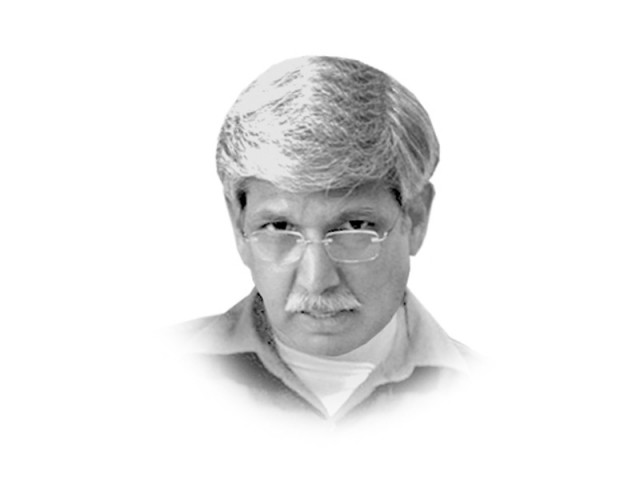Time to become normal
Do we wish to ‘humiliate America’ in Afghanistan, or ‘save Pakistan’ from becoming the epicentre of an expanded war?

The second implied facet of this historical baggage was our inclusion into the big league. Though we were but a part of an international balance of power that was keen to include and add to its own bloc nations that could serve as the frontline in their battle for influence, we assumed an arrogated role and influence that was, in essence, borrowed.
Old habits die hard. Even after the Cold War was over, we continued with our old ways. We were introduced to the notion that intelligence agencies could actually be used to affect international events — courtesy of our American brothers; the role that was to be subsequently played in the 1979 Afghan War. We sought to internationalise the Kashmir dispute by using the leftover potential of the Afghan War and attempted to bring the issue back into international focus; then we sought extended lien over Afghanistan simply because we had been a conduit to another American adventure in that country. In playing that role, we assumed ‘we’ had shaped history.
Simply, we were playing in the wrong league. We failed to understand the expediency that was in play by a superpower. Do we recognise this today and accept the irony of our misplaced import? By what goes on, clearly we do not. Our new fascination is humbling America! Do we wish to ‘humiliate America’ in Afghanistan, or ‘save Pakistan’ from becoming the epicentre of an expanded war? We need to make clear choices between primeval sensibilities and rational and objective reasoning.
Our acquired ‘processes’ of statecraft obfuscate the need to envision policy and its intellectualised implications. We are a hands-on nation, always on-the-job; our masters taught us that. Since we were only used as handymen, we never learnt to reflect. If we can’t create, we will destroy — action always. This is why we don’t produce thinkers or philosophers or visionaries. This is why we remain a nation without a vision or knowledge of its destiny.
In a recent TV debate on a reputed Indian channel, a participant opined that “Pakistan was down and out” and, hence, not a factor of any consideration in the revised dynamics of India’s own way forward. It may only be partially correct — Pakistan’s catastrophic slide could, for one, be of immense concern to India (always the negative, unfortunately) — but it remains a popular perception. We have become the epicentre of too many things vile. Is it of concern to the Pakistanis too? There is still too much good to be wasted in this country. A thought has repeatedly occurred in the last few days — it is time to rethink and recreate Pakistan. Without the thinkers and without the visionaries who will bring us around?
Perhaps, the best resort is that fabled dictum: when weak, regroup; collapse your flanks from beyond to within your physical capacity. It is time to regroup and rethink. Let’s accept we were wrong; that we are weak too. That, we have extended ourselves in our interests and in imagining our influence far beyond our real capacity. That it is not our nuclear status that will bring us respect and influence in the eyes of the global community but the number of scientists, inventors and thinkers that we will produce.
Pakistan’s brief hiatus in its relations with America may just be that moment to review and reconsider. We have returned from the brink. Our priorities must be in the following order: facilitate an end to the war and from then on only focus inside; shun the grand illusions of an extended influence — geography can wait, it’s not going anywhere; recreate the pride in being a nation that we can through a breed of thinkers, scientists, philosophers, inventors and sportsmen. Let the world see the positive in us. Let religion not be our only recognition.
Let’s reimagine Pakistan. For that, we need to love Pakistan more than we hate America.
Published in The Express Tribune, May 22nd, 2012.














COMMENTS
Comments are moderated and generally will be posted if they are on-topic and not abusive.
For more information, please see our Comments FAQ